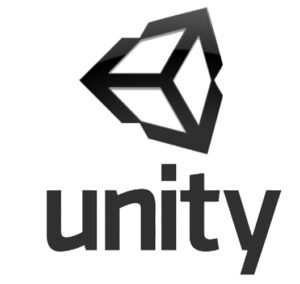Gaming has been a booming industry for decades, and it is still skyrocketing. By 2025, the global gaming market is expected to hit $503.14 billion, up from $396 billion in 2023. From Nintendo to Blizzard, from handheld consoles to PS5, from Tetris to PUBG, countless classic games have woven endless joy and profound emotions into the fabric of our lives. Creating such masterpieces requires more than just creativity and skill—it demands the power of a robust game engine. Today, We will explore the essential game engines that drive the magic behind these beloved blockbusters.
What is a Gaming Engine?
A game engine is a software development platform initially designed for creating video games. Today, game engines are versatile tools used not only in gaming but also in media and entertainment (like virtual effects), visualization (such as digital twins), collaboration, and more. If we think of a game as a body, then the engine is like the nervous system running throughout. It’s everywhere, supporting and controlling the body’s functions. These engines come packed with features like animation tools, artificial intelligence, physics and collision engines, audio engines, and much more.
How Does a Gaming Engine Work?
In a nutshell, game engines provide the framework that makes creating something like a video game or a digital twin much easier than starting from scratch. While each engine offers different features, they typically include a 2D or 3D rendering engine. Initially, game engines were developed by game creators to streamline and speed up the process of making new games. Nowadays, these powerful tools are being used across various industries to visualize data, products, and processes in innovative ways, as well as to foster new methods of collaboration and creativity.
The Most Prestigious Gaming Engines Worldwide
Next I will list some of the most prestigious gaming engines being used by well-recognized gaming companies or indie devs along with their strength & weakness.

-
Unreal Engine, developed by Epic Games since 1998, is a leading game engine that has continuously evolved. While Unreal Engine 4 (UE4) was already popular among developers, Unreal Engine 5 has brought even more exciting features and improvements. Unreal Engine is known for being well-documented and user-friendly, making it accessible for developing any type of game, from console to mobile (both Android and iOS). Not only that, Unreal Engine’s versatility extends beyond gaming, you can even find its use in the automotive industries. The easy-to-use feature makes Unreal Engine a favorite among both beginners and experienced developers. It’s widely used by everyone from AAA game developers to indie studios. For example, Epic Games uses Unreal Engine for one of their major titles – Fortnite: Save the World. It’s also the engine behind numerous other popular games, like the mobile version of Mortal Kombat.
Strength:
-
User-friendly blueprint system, perfect for non-programmers.
-
Excellent for creating high-end graphics.
-
Superior performance compared to many other game engines.
-
The best option for VR development.
-
Access to the Unreal Engine Marketplace, which offers a variety of free assets.
Weakness:
-
Best Suited for 3D Games: Unreal Engine excels with 3D games but isn’t as ideal for 2D or mobile games.
-
High System Requirements: Advanced features require powerful hardware.
-
Steeper Learning Curve: It has a higher entry threshold for new users.

-
Unity is a top dog in the game engine world, perfect for both mobile and desktop platforms. One of its standout tricks is making interactive 3D content a breeze. Its awesome functionality and high-quality results make it the go-to for many big studios. Unity handles both 2D and 3D content like a champ and can whip up any type of game you dream of. The all-in-one editor works across a bunch of platforms, including Windows, Mac, Linux, iOS, Android, Switch, Xbox, PS4, and Tizen. Its user-friendly interface makes development a piece of cake, cutting down on the need for heavy-duty training. And the cherry on top? The Unity Asset Store is jam-packed with a huge and ever-growing collection of tools and content to supercharge your projects.
Strength:
-
Free for Beginners: Unity offers a free version perfect for those just starting out.
-
Flexible and Extensible: The engine includes out-of-the-box components and can be easily customized.
-
Great for 2D and 3D Games: Unity excels at developing both 2D and 3D games.
-
Mobile Game Development: It has strong support for creating mobile games.
-
VR and AR Ready: Software development kits (SDKs) are available for virtual and augmented reality.
-
Cross-Platform Capabilities: Unity supports a wide range of platforms.
-
Unity Asset Store: A rich resource with many free assets to help enhance your game.
Weakness:
-
Expensive Professional Licenses: The professional versions can be pricey.
-
New Programming Language: Developers need to learn Unity’s programming language.
-
No Source Code Access: Small development teams don’t get access to the source code.
-
High System Requirements: Advanced features need powerful hardware.
-
Frequent UI Changes: The user interface changes often, which can be disruptive.
-
No External Library Links: Unity doesn’t support links to external libraries.
-
Cumbersome and Slow: The engine can be slow and cumbersome to use at times.

-
Godot is totally free and open-source, rocking an MIT license. No royalties, no subscription fees, no sneaky hidden costs – and that’s why it’s my absolute fave. It’s a fantastic engine for whipping up both 2D and 3D games, packed with a ton of built-in tools so you can focus on crafting your masterpiece without reinventing the wheel. The Godot community is buzzing, always squashing bugs and adding cool new features. Got a super specific question? The community’s got your back! Plus, Godot’s connected to all the happening spots online, like Reddit forums, Facebook groups, the Steam community, and the official Godot forums.
Strength:
-
Totally free and open-source, no strings attached.
-
Perfect for both 2D and 3D games.
-
Works across multiple platforms like a champ.
-
Has a unique architecture that makes game development a breeze.
-
Simple and intuitive interface that won’t give you a headache.
Weakness:
-
Doesn’t have as many resources and materials as some of the big-name engines.
-
There’s a bit of a learning curve, but nothing you can’t handle!
